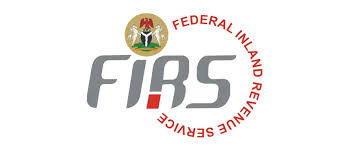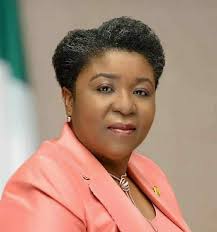News
Tinubu Bows To Pressure, Suspends Cyber Security Levy

President Bola Tinubu has instructed the Central Bank of Nigeria to suspend the implementation of the 0.5 per cent cybersecurity levy in response to public backlash and opposition following its announcement.
Minister of Information and National Orientation, Mohammed Idris, disclosed the suspension of the levy, yesterday.
Idris stated that President Tinubu has directed the CBN to temporarily halt the enforcement of the 0.5 per cent cybersecurity levy and to review the methods for its application.
Recall that members of the House of Representatives last Thursday asked the CBN to withdraw the circular directing financial institutions to commence implementation of the 0.5 per cent cybersecurity levy, describing it as “ambiguous”.
The introduction of the new levy sparked varied reactions among stakeholders as it is expected to raise the cost of conducting business in Nigeria and could potentially hinder the growth of digital transaction adoption.
The CBN had, on May 6, 2024, issued a circular mandating all banks, mobile money operators, and payment service providers to implement a new cybersecurity levy, following the provisions laid out in the Cybercrime (Prohibition, Prevention, etc) (Amendment) Act 2024.
According to the Act, a levy amounting to 0.5 per cent of the value of all electronic transactions will be collected and remitted to the National Cybersecurity Fund, overseen by the Office of the National Security Adviser.
Financial institutions are required to apply the levy at the point of electronic transfer origination.
The deducted amount is to be explicitly noted in customer accounts under the descriptor “Cybersecurity Levy” and remitted by the financial institution. All financial institutions are required to start implementing the levy within two weeks from the issuance of the circular.
By implication, the deduction of the levy by financial institutions should commence on May 20, 2024.
However, financial institutions are to make their remittances in bulk to the NCF account domiciled at the CBN by the fifth business day of every subsequent month.
The circular also stipulates a timeframe for financial institutions to reconfigure their systems to ensure complete and timely submission of remittance files to the Nigeria Interbank Settlement Systems Plc as follows: “Commercial, Merchant, Non-Interest, and Payment Service Banks – Within four weeks of the issuance of the Circular.
“All other Financial Institutions (Microfinance Banks, Primary Mortgage Banks, Development Financial Institutions) – Within eight weeks of the issuance of the Circular,” the circular noted.
The CBN also emphasised strict adherence to this mandate, warning that any financial institution that fails to comply with the provisions will face severe penalties.
As outlined in the Act, non-compliant entities are subject to a minimum fine of two per cent of their annual turnover upon conviction.
The circular provides a list of transactions currently deemed eligible for exemption, to avoid multiple applications of the levy.
These are loan disbursements and repayments, salary payments, intra-account transfers within the same bank or between different banks for the same customer, and intra-bank transfers between customers of the same bank.
Exemptions include other financial institutions’ transfers to their correspondent banks, interbank placements, banks’ transfers to CBN and vice versa, inter-branch transfers within a bank, cheque clearing and settlements, letters of credit, and banks’ recapitalisation-related funding.
Others are bulk funds movement from collection accounts, savings, and deposits including transactions involving long-term investments such as treasury bills, bonds, and commercial papers, and government social welfare programmes transactions.
These may include pension payments, non-profit and charitable transactions including donations to registered non-profit organisations or charities, educational institutions transactions, including tuition payments and other transactions involving schools, universities, or other educational institutions, and transactions involving the bank’s internal accounts, inter-branch accounts, reserve accounts, nostro and vostro accounts, and escrow accounts.
News
Learn How To Form Coalition Party From Tinubu, Sowunmi Tells Atiku

Spokesman to former Vice President Atiku Abubakar, and chieftain of the People’s Democratic Party (PDP), Mr Segun Sowunmi, has advised his principal, Atiku, to learn from President Bola Tinubu on how to form a coalition.
The Tide reports that in a bid to wrest power from President Tinubu in 2027, Atiku has been leading the movement by opposition politicians to form a coalition of political parties ahead of the next general election.
Last month, opposition politicians set up a team comprising former Minister of Transpiration, Rotimi Amaechi, and former Governor of Cross River State, Liyel Imoke, to decide whether to float a new party or fuse into an existing platform.
While the main opposition party, PDP, struggles with a perennial leadership crisis, the former Vice President is bent on establishing another political force to take power from the ruling party in 2027.
But Sowunmi, who has been Atiku’s ally for many years, disagrees with his move, saying instead of forming a coalition with another political platform, he should coalesce opposition politicians into the PDP.
Speaking during an interview on TVC on Tuesday, Sowunmi, who was Atiku’s campaign spokesperson in the last election, asked his principal to learn from President Tinubu on how to form a coalition.
Sowunmi believes Atiku, having benefitted from the PDP as a former Vice President and getting the party’s presidential ticket twice, should not seek to form a coalition that will not have the PDP as its base.
He said, “I’ve always said to people, people love with their hearts. I love atiku with my bones. But I can’t help him against himself. You can’t run vice presidency on PDP two times with Obasanjo, get presidential candidate on that same party two times. I don’t agree with him that the next best thing is to be shopping for…(a platform) If you want a coalition, why are you not coalescing them into your party?” he asked.
The former PDP governorship candidate in Ogun State advised the ex-VP to learn from Tinubu on how to build a coalition without dumping his political party.
“Look at your rival, your friend. You guys started together. At best, even if you want to say he’s building a coalition is he not coalescing opponents into his place”? Sowunmi asked again.
The PDP chieftain, who recently showered praises on Tinubu after he visited him, said the President has an “uncanny ability to make everybody individually feel special” regardless of political affiliations.
His words: “That guy (Tinubu) is something oh, he has this uncanny ability to make everybody individually feel special. It doesn’t matter whether you are a former foe or a president’s friend, every moment you share with him, I don’t know how he does it, though you’re going to leave the place feeling that you matter, feeling that he gets it, feeling that what you guys are talking about is important. And there’s something about him, when he gives you his word, he will say something like ‘ko le ye’, meaning that to the best of human ability, it will stand.”
Meanwhile, there have been conversations about Sowunmi’s political stance as many questioned his relationship with Atiku, with whom he shares a longstanding political relationship.
Asked about his relationship with Atiku following his meeting with Tinubu, Sowunmi said he doesn’t know if the former Vice President is upset.
“I don’t know whether Atiku is upset or not upset, but I know a lot of our followers are talking a lot of nonsense, and I’m wondering how I became attached to Atiku when I’ve been in PDP since 1999 never leaving,” he responded.
News
FIRS Introduces New SOP To End Tax Confusion Nationwide

The Federal Inland Revenue Service (FIRS) has introduced a new Standard Operating Procedure (SOP) to fix inconsistencies in tax services across its over 300 offices nationwide.
The move aims to make tax processes clearer, more transparent, and easier for Nigerians.
In a statement, Special Adviser on Communications and Advocacy to the FIRS Executive Chairman, Mr. Collins Omokaro, said the updated SOP is a key part of the agency’s plan to improve taxpayer experience.
He explained that, in the past, different FIRS offices used different methods, which often confused taxpayers.
“This is about people, experience, and impact. It’s a step towards a tax system that supports voluntary compliance and national development,” Omokaro said.
The new SOP provides a single guide for key processes like registration, payment, audit, and enforcement. This will ensure all FIRS offices follow the same steps, making the system fairer and more predictable.
FIRS Executive Chairman, Dr. Zacch Adedeji, described the SOP as more than just a set of rules.
“This SOP is not just a technical document; it is a declaration of who we are becoming as a service. It reflects our commitment to transparency and service to the Nigerian people,” he said.
The SOP also supports FIRS’s digital transformation, combining human and technological systems to deliver faster and more reliable services. It will also improve internal efficiency by providing clear guidance and better training for staff.
“With this rollout, every FIRS staff member has a clear mandate: study it, apply it, and embody it. That’s how we’ll earn the trust of Nigerians,” Omokaro added.
The reform is part of FIRS’s efforts to become a more service-driven organisation, focused on clarity, consistency, and national growth. The agency hopes the new SOP will make tax services better for Nigerians and increase public trust in the system.
News
FG Working Towards World-Class Public Service -Walson-Jack

The Head of the Civil Service of the Federation (HCSF), Mrs Didi Walson-Jack, says the Federal Government is committed to building a world-class public service in Nigeria.
Walson-Jack made this known in Abuja, on Wednesday, at a World Press Conference ahead of the International Civil Service Conference and the African Public Service Week scheduled for June 25 to 26 in Abuja.
She said a recent study tour to Singapore was part of preparatory activities aimed at positioning Nigeria’s civil service for excellence and attracting global participation in the upcoming events.
“The study tour to Singapore was the first major activity we undertook under the collaboration between the Office of the Head of Civil Service of the Federation and the Heads of Service of the 36 states and the FCT,” she said.
According to her, the visit, supported by the United Nations Development Programme (UNDP), involved 20 State Heads of Service and was designed to benchmark best global practices and enhance Nigeria’s public service delivery.
“The idea was born out of our ongoing collaboration, where we share ideas and knowledge across federal and state levels.
“Singapore was chosen because it is globally recognised for excellence in public service,” she explained.
Walson-Jack noted that the second phase of the tour will involve the remaining 17 heads of service later this year.
She said the tour provided participants with the opportunity to engage with both public and private sector institutions in Singapore, compare administrative practices, and gain insights into global standards.
“It was an eye-opener and a capacity-building opportunity.
“Since our return, several state civil services have begun implementing reforms in collaboration with the federal service, particularly in areas such as capability development and digital transformation,” she added.
Walson-Jack further disclosed that Nigeria would host a reciprocal study tour during the upcoming African Public Service Week, where foreign delegates will engage with various federal institutions.
“They will see firsthand our digitalisation efforts, performance management systems, and other reform initiatives aimed at transforming our civil service.
“We hope the experience will inspire similar actions in their home countries,” she said.
-
Rivers5 days ago
TADC, RSU Collaborate On Campus-Based Agric Initiative
-

 Sports5 days ago
Sports5 days agoUS Based Athletes To Lead Nigeria In Fencing Championships
-
Business5 days ago
PETROAN Tasks NNPC On Accountability, Transparency In Operations …Wants 3m Barrels Reserved For Future Domestic …Oppose Repair Of PH Refinery
-

 Nation5 days ago
Nation5 days agoOceans Exhibition Understand And Act: Raising Awareness Through French Language
-
Opinion5 days ago
Fighting Insecurity: Shagari’s Model
-

 News5 days ago
News5 days agoEx-president Buhari donates cow, rice to corps members in Daura
-
Rivers5 days ago
Rivers SOLAD Urges Traditional Rulers To Protect Govt Facilities
-

 Sports5 days ago
Sports5 days agoIkpeba Football Challenge Final Holds,’Morrow











